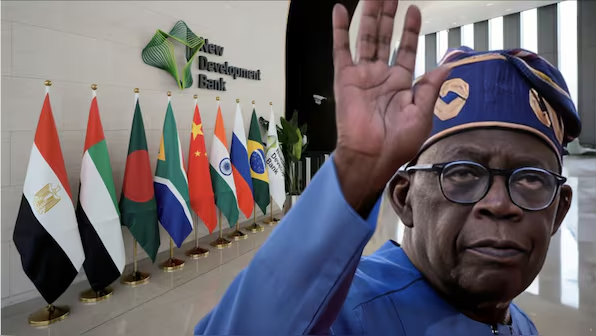By Tasha Chongo
On January 17, 2025, Nigeria officially joined the BRICS group as a partner country, marking a significant moment in the country’s foreign policy and economic trajectory. This decision is not only a triumph for Africa’s largest economy but also a signal of a broader shift in global geopolitics, as emerging economies increasingly challenge the traditional economic powers and reshape the international order.
BRICS, an acronym for Brazil, Russia, India, China, and South Africa, is an association of major emerging economies that together wield considerable influence on the global stage. Initially formed in 2009, BRICS represents approximately 40% of the world’s population and nearly a quarter of global GDP. Over the years, BRICS has sought to promote multilateral cooperation, economic development, and reform of global institutions such as the United Nations and the International Monetary Fund.
Historically, the group has been united by a common desire to challenge the dominance of Western powers in global governance, advocating for a more equitable international system that reflects the growing economic influence of the Global South. While BRICS countries have diverse political systems, histories, and development strategies, they share a commitment to fostering economic growth, boosting trade among themselves, and enhancing their geopolitical clout.
Nigeria’s inclusion as the ninth BRICS partner country reflects the country’s growing importance in global affairs and its strategic ambitions to play a larger role in shaping international economic and political outcomes. With a population of over 200 million and a rapidly expanding economy, Nigeria has long been Africa’s largest economy and one of the continent’s top oil producers. The country is also a key player in regional organizations such as the African Union (AU) and the Economic Community of West African States (ECOWAS).
Nigeria’s decision to align itself with BRICS comes at a time when the global balance of power is shifting, and the role of emerging markets is becoming more pronounced. Nigeria’s membership will likely enhance its economic standing, facilitating increased trade, investment, and diplomatic influence within the BRICS framework. Nigeria’s strong economic growth prospects, diversified resources, and young, growing population make it a natural partner for the group, particularly as BRICS seeks to expand its global reach beyond its founding members.
Joining BRICS offers Nigeria several strategic benefits, ranging from economic to geopolitical. Here are some key advantages:
1. Increased Trade and Investment Opportunities: BRICS countries are major economic players with enormous markets and investment potential. Nigeria’s partnership with BRICS opens doors to enhanced trade relations with countries like China, India, Brazil, and Russia. As one of the leading oil exporters, Nigeria stands to benefit from deeper economic ties with BRICS members, especially in sectors such as energy, infrastructure, and technology.
2. Diversification of Economic Ties: Nigeria has long been reliant on its oil exports, which account for a significant portion of its revenue. By joining BRICS, Nigeria can reduce its dependence on Western markets and diversify its trade and investment partnerships. The BRICS countries offer alternative financing options, especially for infrastructure development, which is one of Nigeria’s key growth priorities.
3. Geopolitical Influence: Nigeria’s membership in BRICS enhances its diplomatic and political influence on the global stage. As an African leader, Nigeria’s participation in BRICS provides it with a powerful platform to advocate for the continent’s interests, from addressing climate change to pushing for fairer trade terms with developed nations. Nigeria can also leverage BRICS’ collective voice to challenge international systems that have historically marginalized developing economies.
4. Strengthening Regional Leadership: Nigeria is a dominant force in West Africa, and its influence in BRICS will likely bolster its leadership role in regional organizations such as ECOWAS. As the group expands its reach, Nigeria can advocate for more robust regional integration and development strategies that benefit both West Africa and the broader African continent.
5. Technology and Innovation Collaboration: BRICS countries are at the forefront of technological innovation and digital transformation. Nigeria, with its growing tech ecosystem, stands to benefit from collaborations in areas such as digital infrastructure, e-commerce, and fintech. By engaging with BRICS partners, Nigeria can tap into new technologies and innovations that could help address some of its most pressing development challenges.
Nigeria’s accession to BRICS highlights Africa’s increasing influence in global economic and political affairs. Over the past decade, the continent has seen a rise in economic growth, increased foreign direct investment, and an emerging middle class. African countries, including Nigeria, have become more vocal in advocating for reforms to international financial institutions, trade policies, and global governance systems.
Nigeria’s entry into BRICS also highlights a shift away from the historical dominance of Western powers in shaping the global economy. African countries are increasingly forming their own coalitions and alliances, such as the African Continental Free Trade Area (AfCFTA) and the BRICS partnership, to build economic self-reliance and challenge traditional power structures. As one of the continent’s largest economies, Nigeria’s role in BRICS provides African nations with an important seat at the table, particularly as global power dynamics continue to evolve.
In 2023, BRICS announced plans to invite new partner countries to join the group, and Nigeria’s accession is part of this broader effort. Twenty-two countries have applied to join BRICS, with some of the notable applicants including Argentina, Algeria, and Venezuela . However, it’s worth noting that not all applications have been successful, with some countries like Argentina and Algeria declining or stopping their applications. In 2024, Egypt, Ethiopia, Iran, and the United Arab Emirates officially joined BRICS, expanding the group’s membership. Indonesia also joined the organisation in January 2025.
With Nigeria now a part of BRICS, the group’s voice on issues like climate change, trade imbalances, and global economic instability will only grow stronger. Nigeria’s inclusion helps to solidify the group as a key player in reshaping the international economic order, advocating for a more equitable distribution of global resources and wealth. The expansion of BRICS also suggests that the era of a unipolar world order dominated by the West is gradually giving way to a more multipolar world where emerging economies play a central role in decision-making.
Nigeria’s inclusion as a partner country in BRICS marks a new chapter in both the country’s foreign policy and the evolving landscape of global geopolitics. As Africa’s largest economy and a key regional player, Nigeria stands to benefit greatly from its participation in BRICS, gaining access to new trade opportunities, investment partnerships, and a stronger voice in global governance. For BRICS, Nigeria’s addition further enhances the group’s influence, particularly in the African continent, which is poised to become an even more critical player in global affairs in the coming decades.
As Nigeria deepens its ties with the BRICS bloc, it will likely drive greater economic cooperation, geopolitical engagement, and development opportunities not only for itself but also for the broader African continent. In a rapidly changing world, Nigeria’s partnership with BRICS symbolises the rise of emerging economies that seek a more balanced and inclusive global order.
Tasha Chongo: Researcher, Writer, Strategy Analyst







